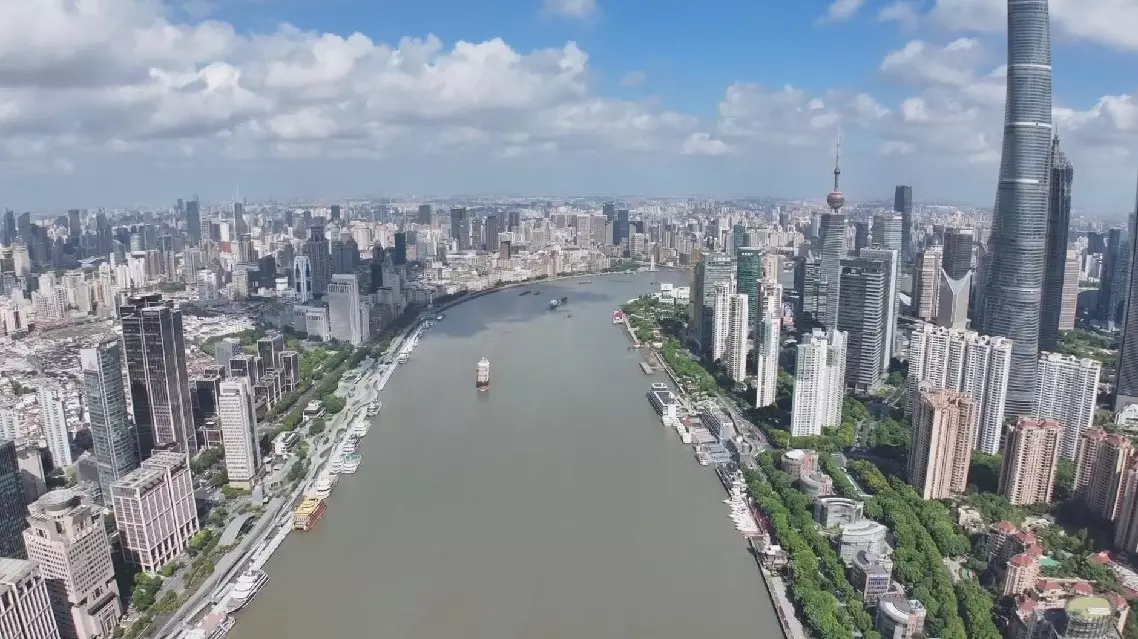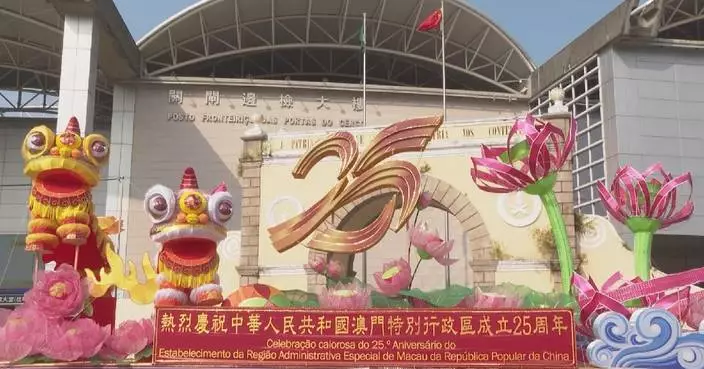Various Chinese localities have made reforms in line with their actual conditions to foster new momentum and new vitality for high-quality economic development.
In an effort to promote the integrated development of sci-tech innovation and industrial innovation, the metropolitan of Shanghai has sped up the cultivation of a batch of high-quality incubators focusing on cutting-edge technologies and future industries to support the prioritized transformation of disruptive sci-tech achievements and the accelerated incubation of hard tech companies.
"The third plenary session of the 20th Central Committee of the Communist Party of China (CPC) has made a series of important arrangements. We will continuously optimize the scientific innovation ecosystem, build no less than 20 high-quality incubators by 2025, cultivate a batch of hard tech companies, and foster two or three scientific innovation clusters with output values exceeding 100 billion yuan (about 14 billion U.S. dollars)," said Zhang Li, director of the Department of Scientific and Technological Achievement Transformation and Incubator Construction of the Shanghai Municipal Science and Technology Commission.
The northwestern province of Gansu has recently issued a plan on improving new quality productive forces, outlining supportive measures in four aspects, including synergizing and matching factors, and 17 tasks such as integrating production, education, research and application.
Based on major innovative outcomes of large platforms and large devices, east China's Anhui Province has created a new industrial cultivation model featuring a special fund, a professional team, and a set of special mechanisms.
So far this year, the province's technology contract turnover has exceeded 230 billion yuan (about 31.7 billion U.S. dollars).
Meanwhile, east China's Jiangsu Province has increased investments in the commercial aerospace industry, of which the output is expected to exceed 150 billion yuan (about 20.7 billion U.S. dollars) next year.
Sichuan Province in southwest China is focusing on emerging industries such as artificial intelligence and green hydrogen. It has strengthened mechanisms of setting up special teams to providing services and promoting key industrial chains in a coordinated manner to meet the needs of companies in terms of technological innovation and market development.
"We will continue to provide normalized services for companies to help them solve problems, optimize the business environment and promote development. Prioritizing high-growth enterprises such as national-level 'little giant' enterprises and national high and new-tech enterprises, we will visit them to provide services to give rise to new industries and new business models and inject new impetus for high-quality development," said Wan Shoubin, deputy director of the Department of Enterprise Services of the Chengdu Municipal Bureau of Economic and Information Technology.
Southwest China's Guizhou Province has accelerated the construction of digital economy and the development of digital industries.
Following the installation of a new batch of intelligent computing chips, the number of large and super-large data centers in operation has reached 11 in the Guian New Area, a national-level new urban area located between Guiyang and Anshun cities in Guizhou.
Guizhou has built a public service platform that offers preferential computing power and flexible deployments of basic models to empower real industries such as coal mining, chemical engineering, and new materials.
Based on digital and intelligent transformation, north China's Hebei Province is promoting the deep integration of digital technologies such as industrial Internet and big data with the manufacturing sector.
In Fuxing District, a traditional industrial base in Handan City of Hebei, more than 30 digital and intelligent transformation projects have been implemented this year to promote the green and low-carbon transformation of traditional industries.
The capital city of Beijing has rolled out a series of innovative measures on piloting data foundation and unleashing industrial value of data factors, with 94 AI large language models registered.
"This year, the added value of our digital economy will reach 2 trillion yuan (about 280 billion U.S. dollars), and the high-tech enterprises are expected to contribute more than 60 percent to the city's economic growth. We will fully implement the spirit of the third plenary session, give better play to our advantages of innovation resources and data resources, accelerate the development of new quality productive forces, and make continuous efforts to promote economic recovery," said Jiang Guangzhi, director of Beijing Municipal Bureau of Economy and Information Technology.

Chinese localities step up efforts to foster new quality productive forces in line with actual conditions









